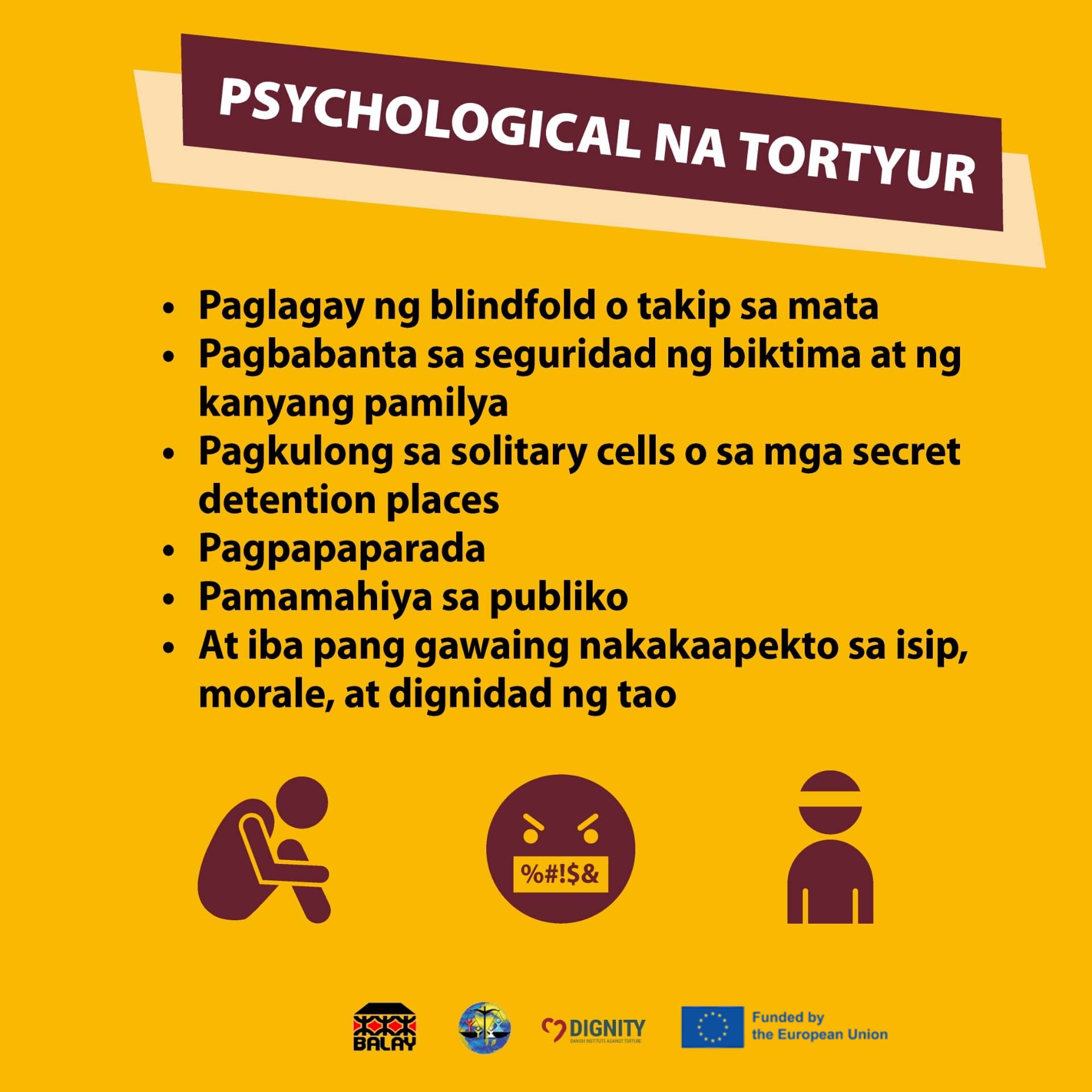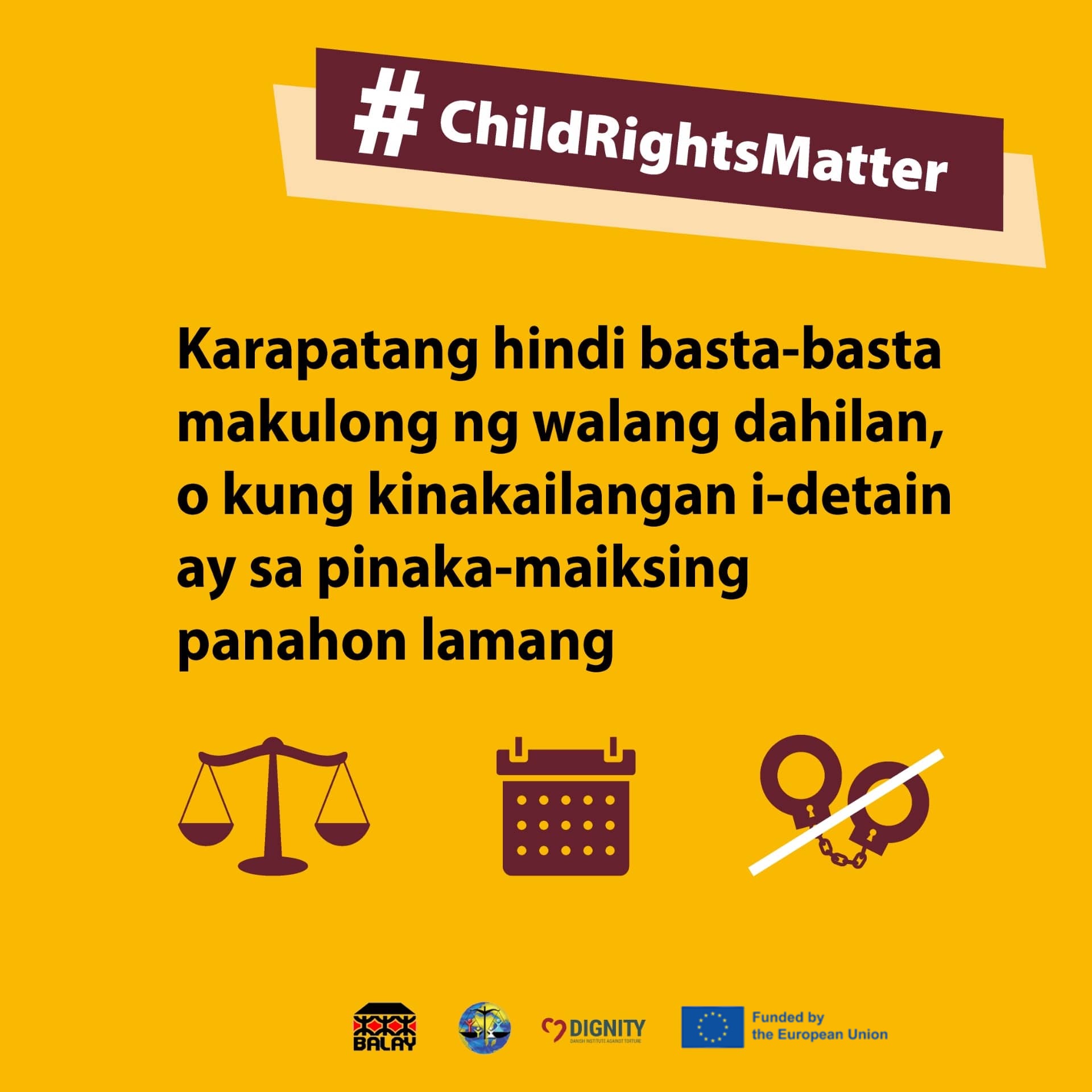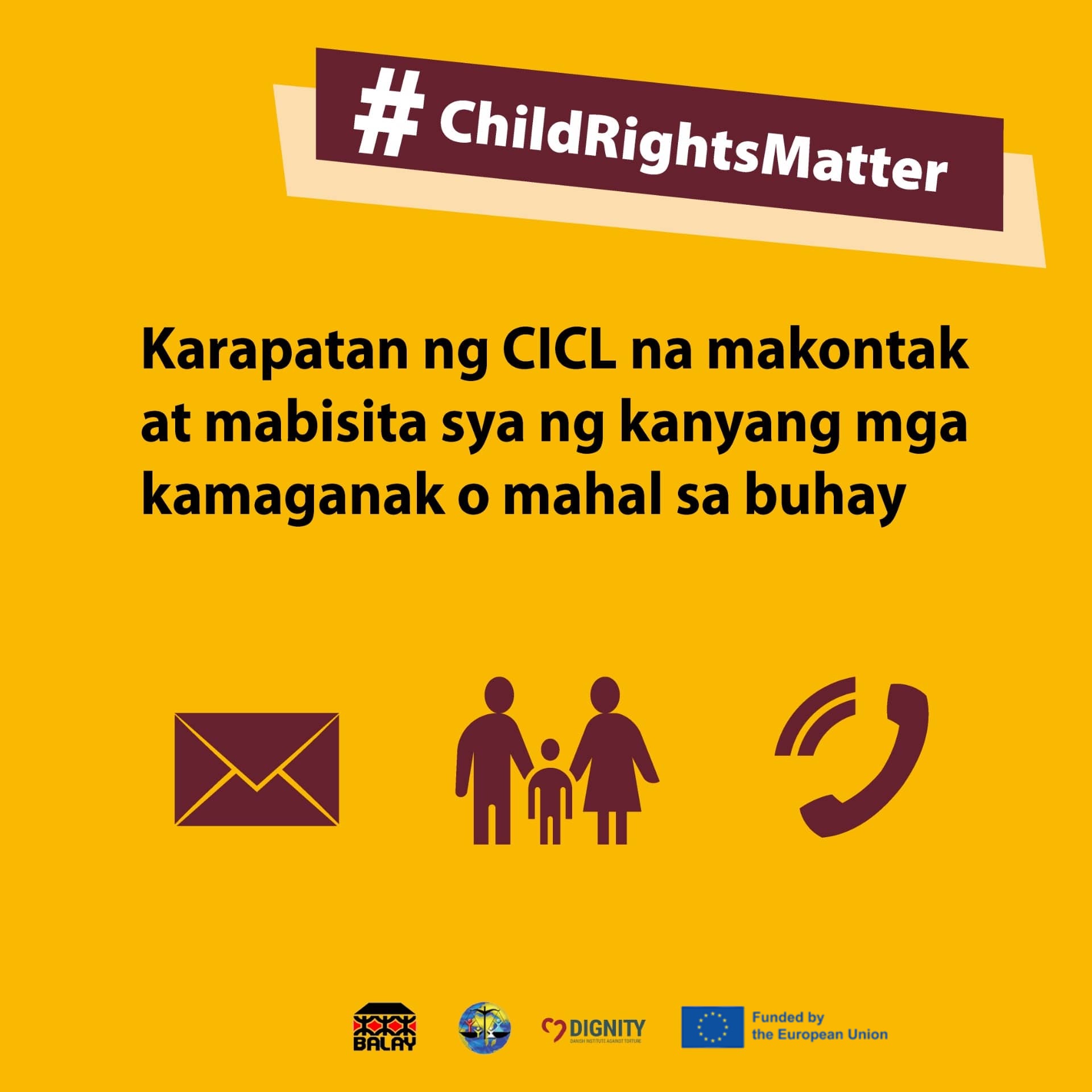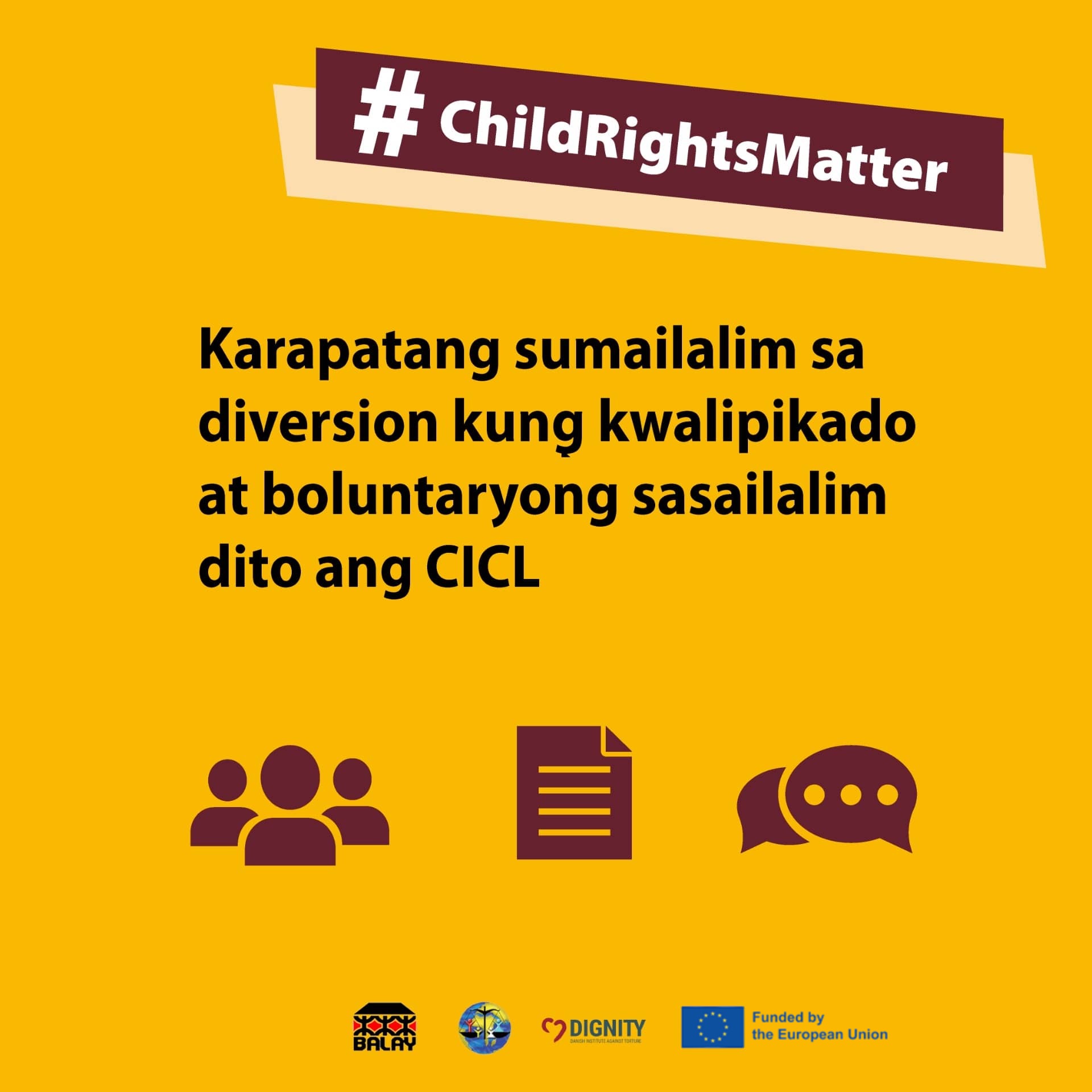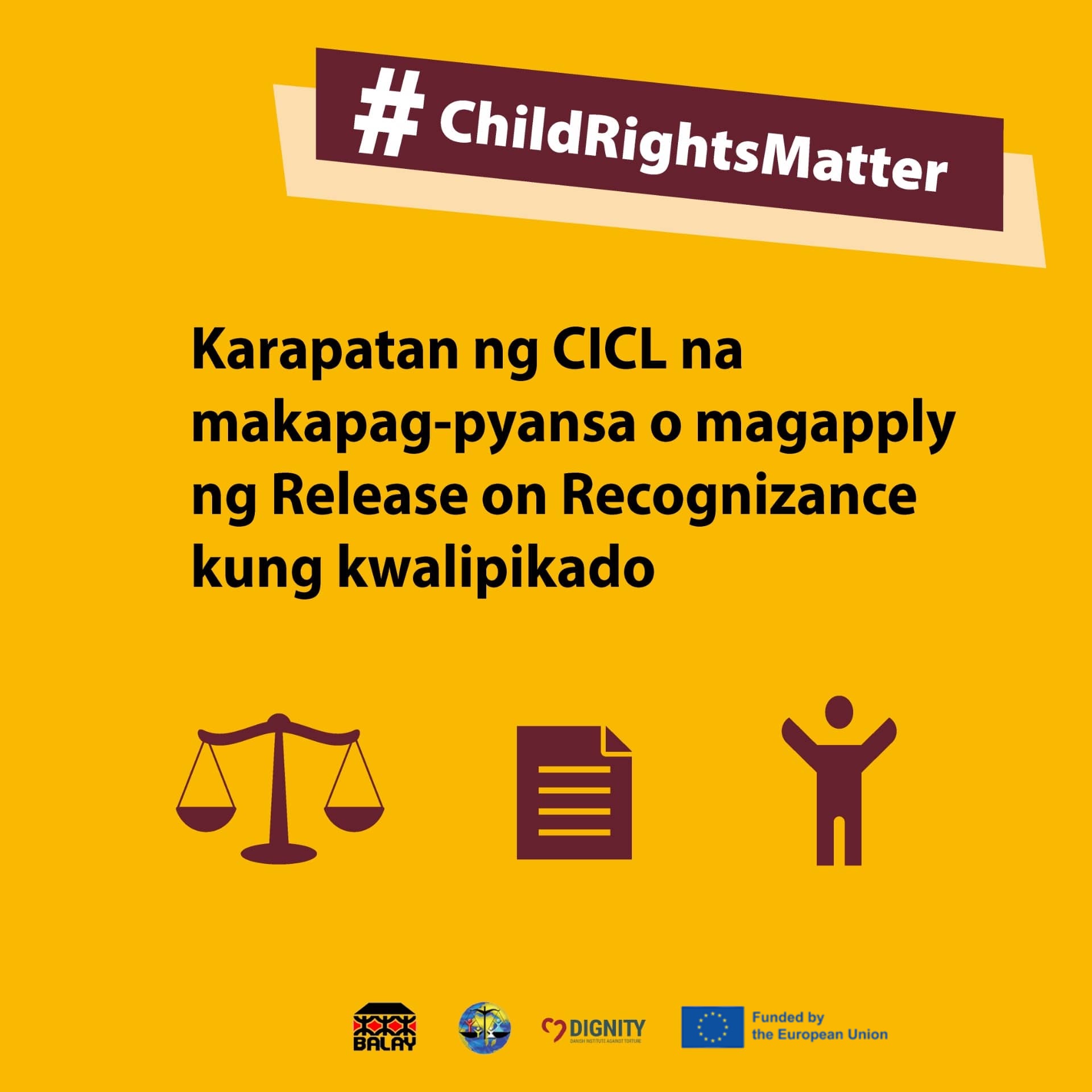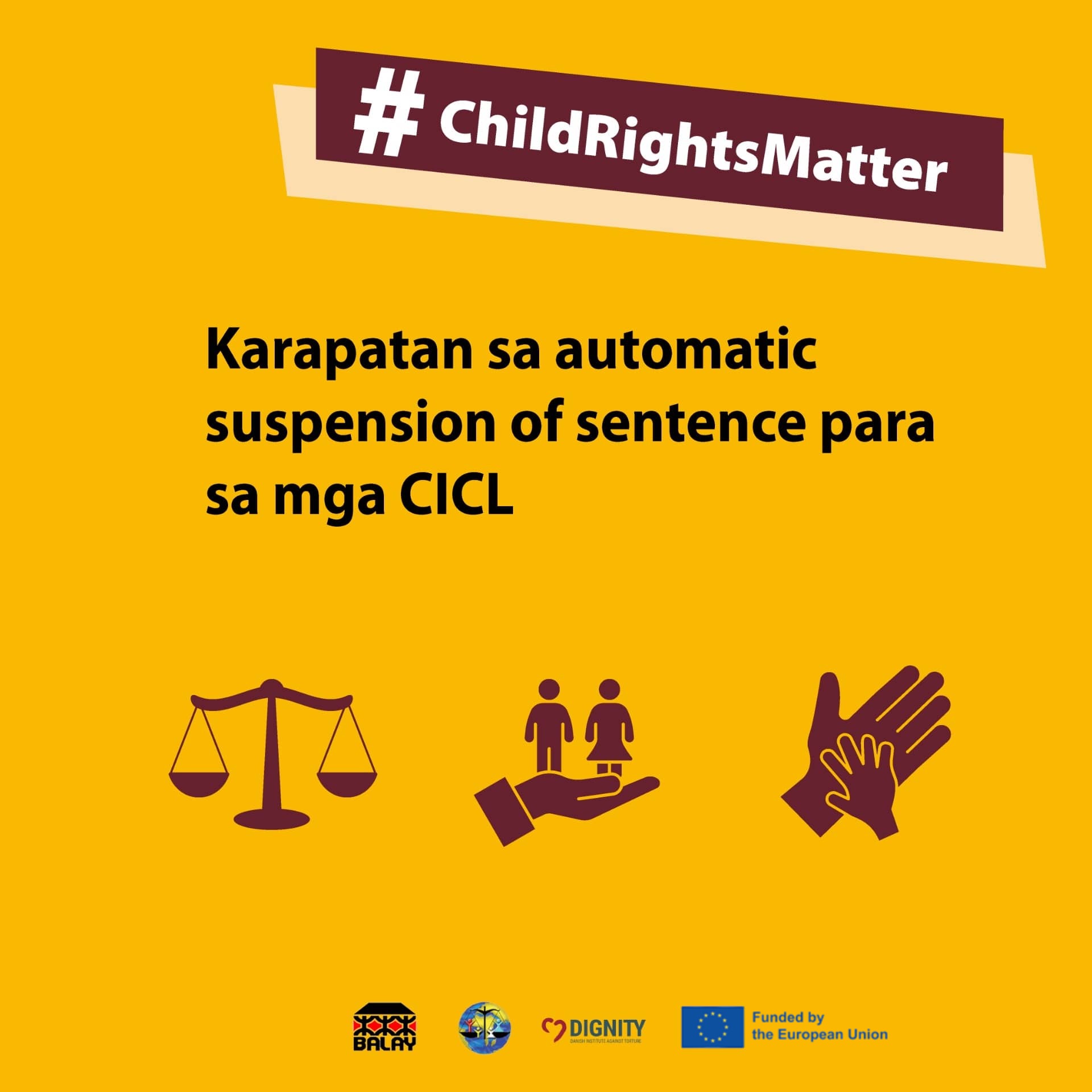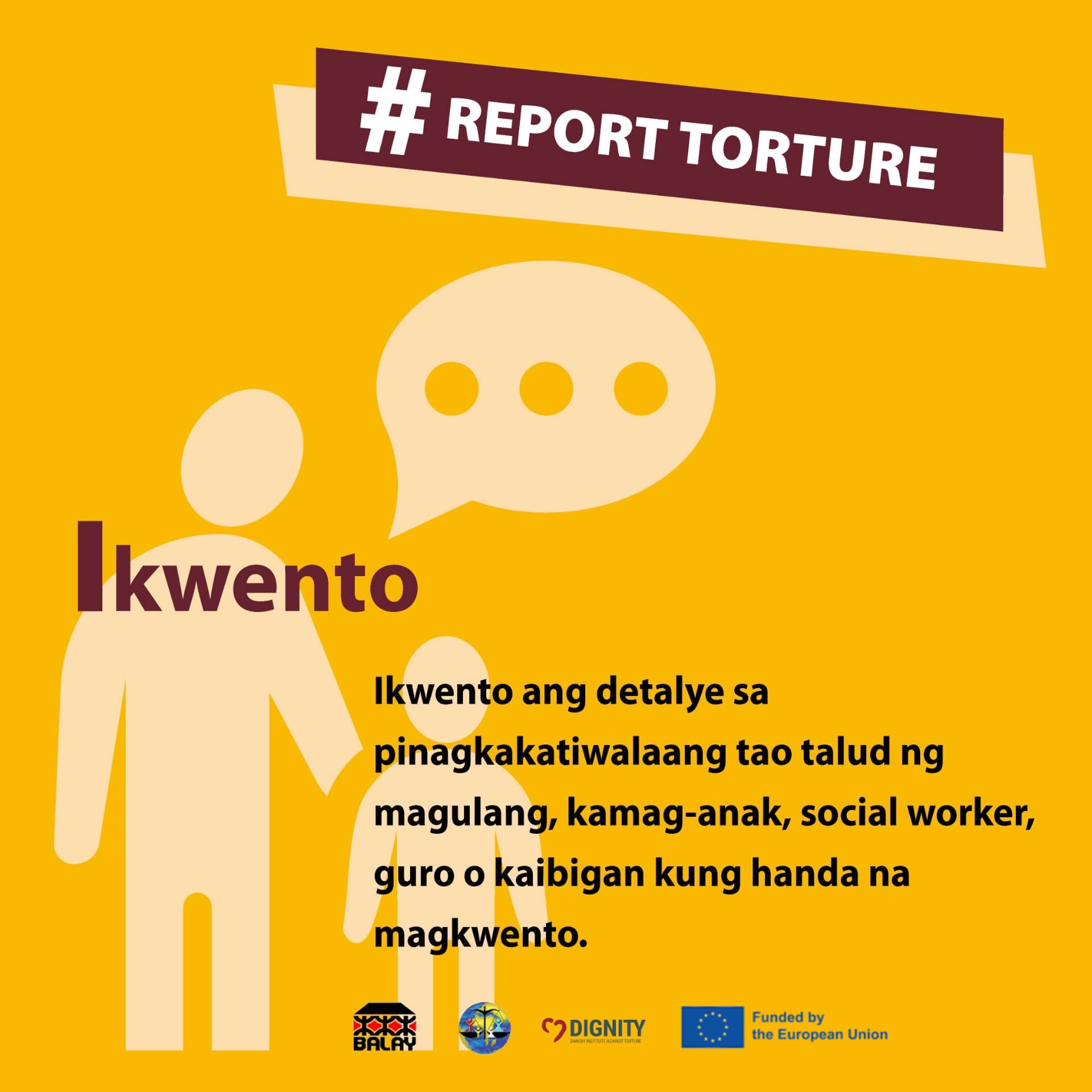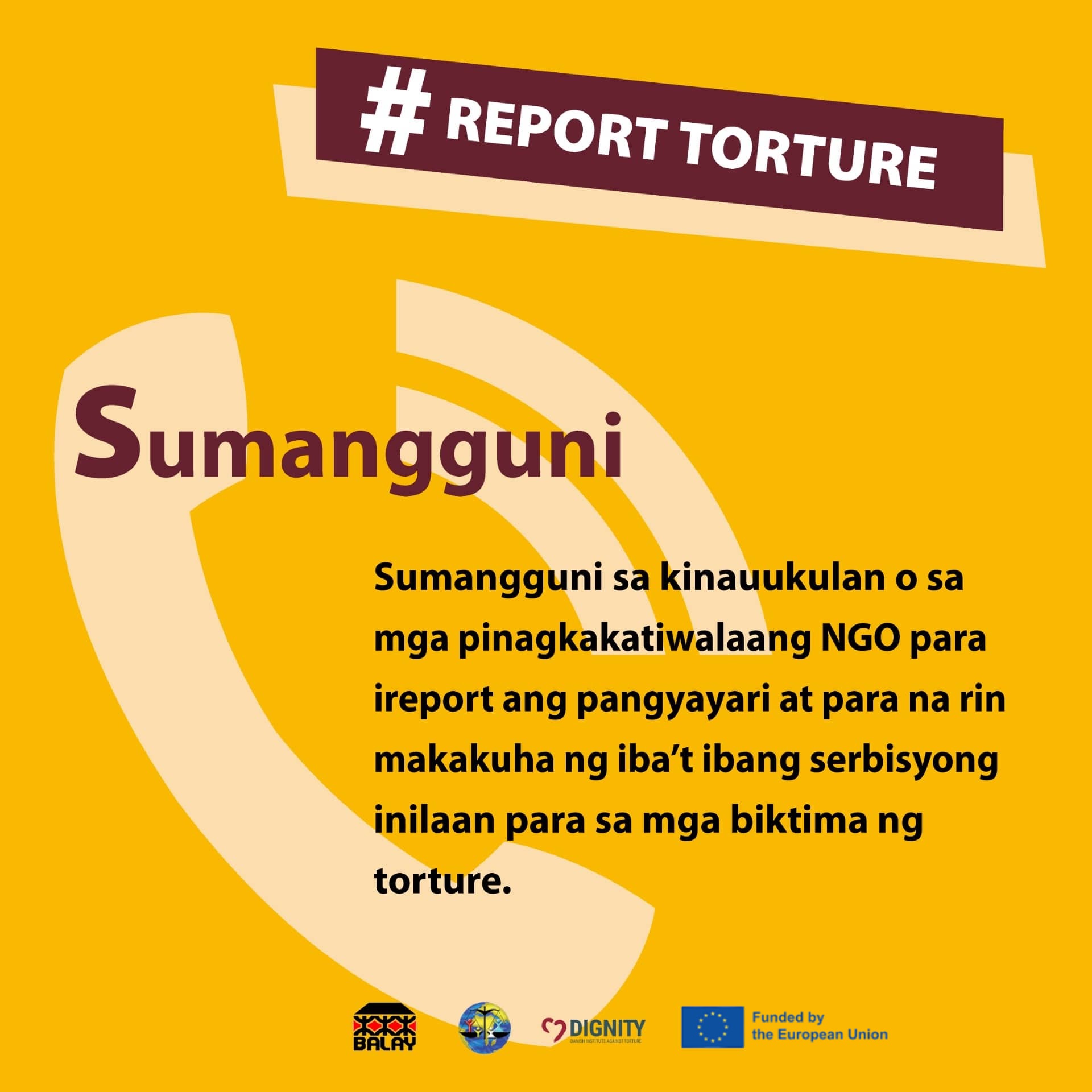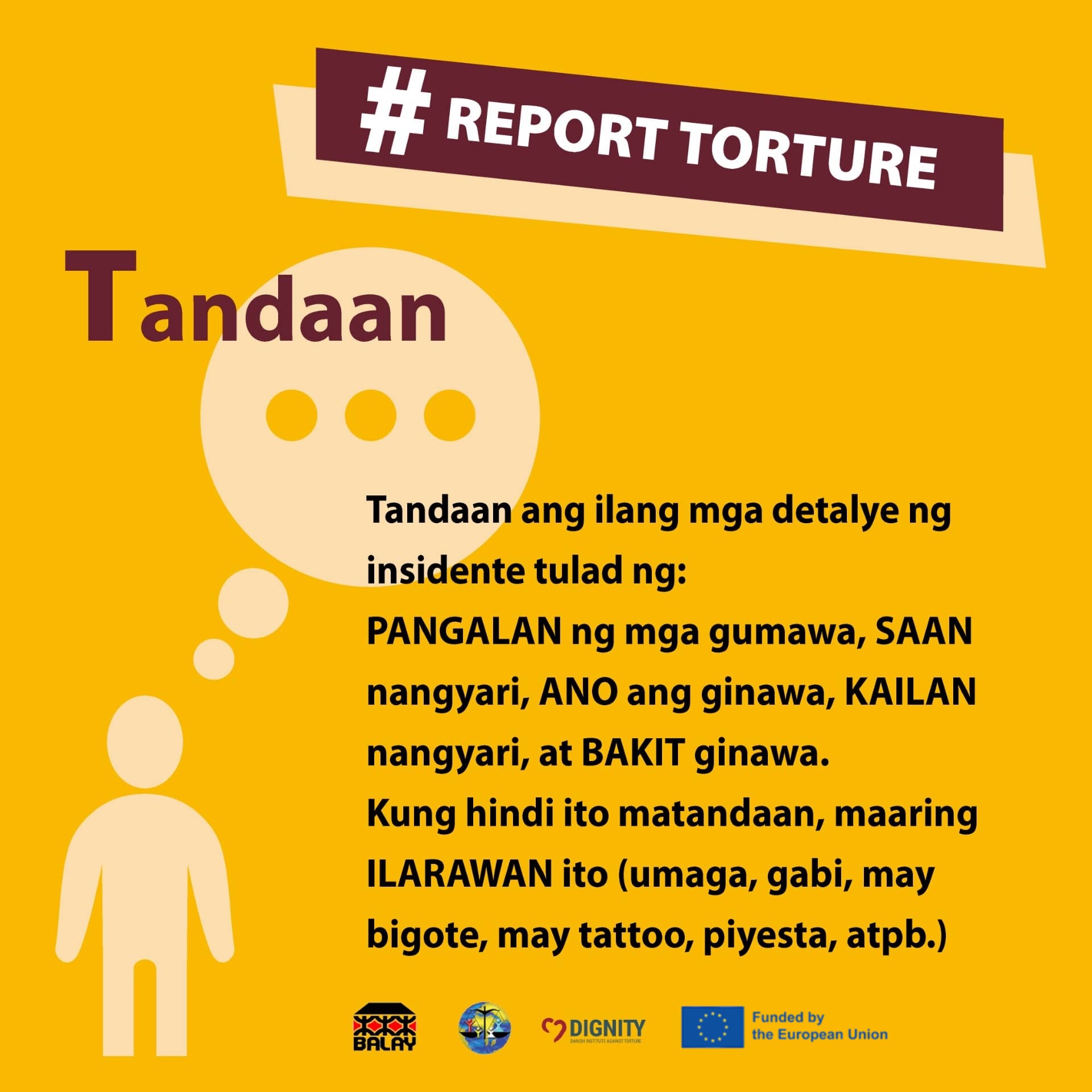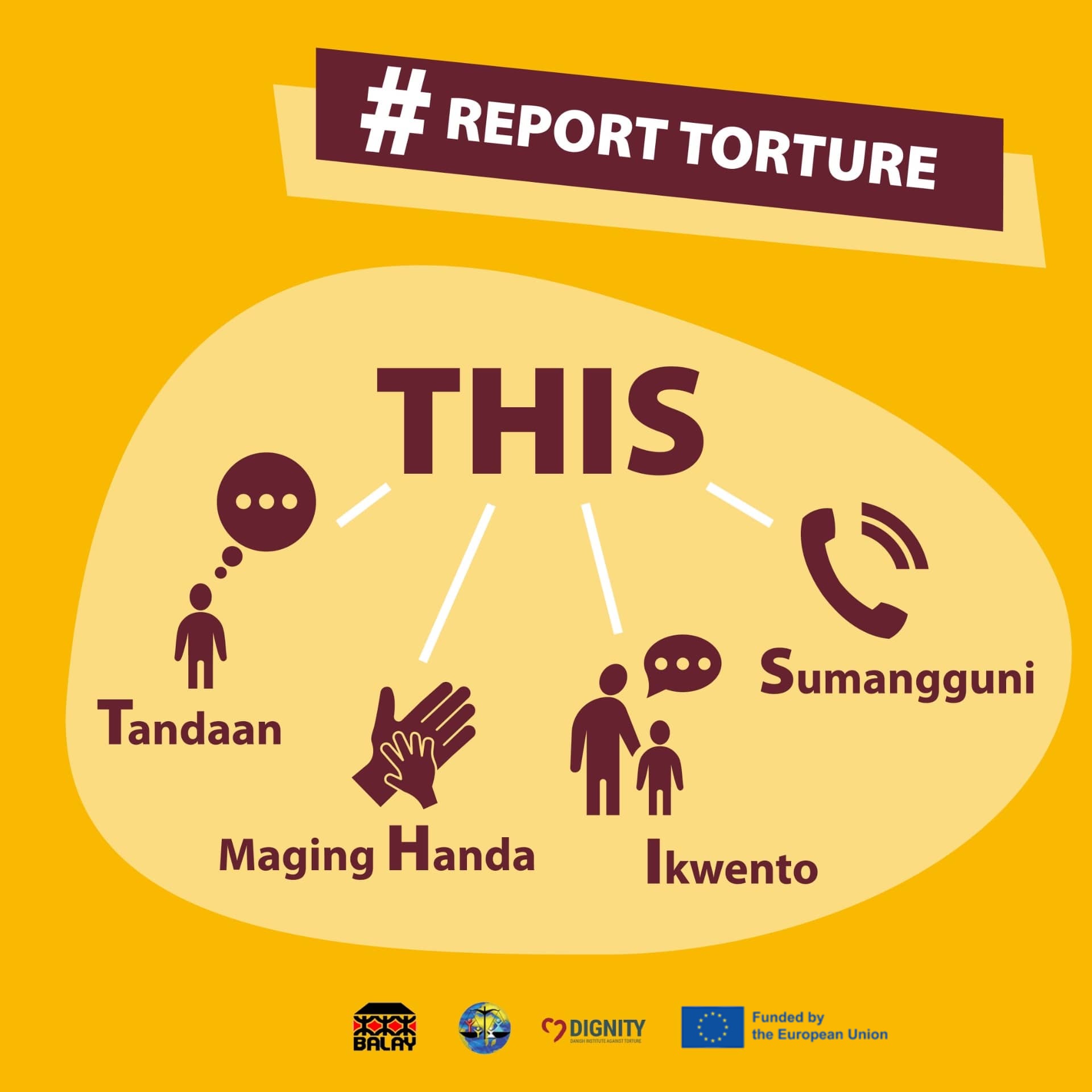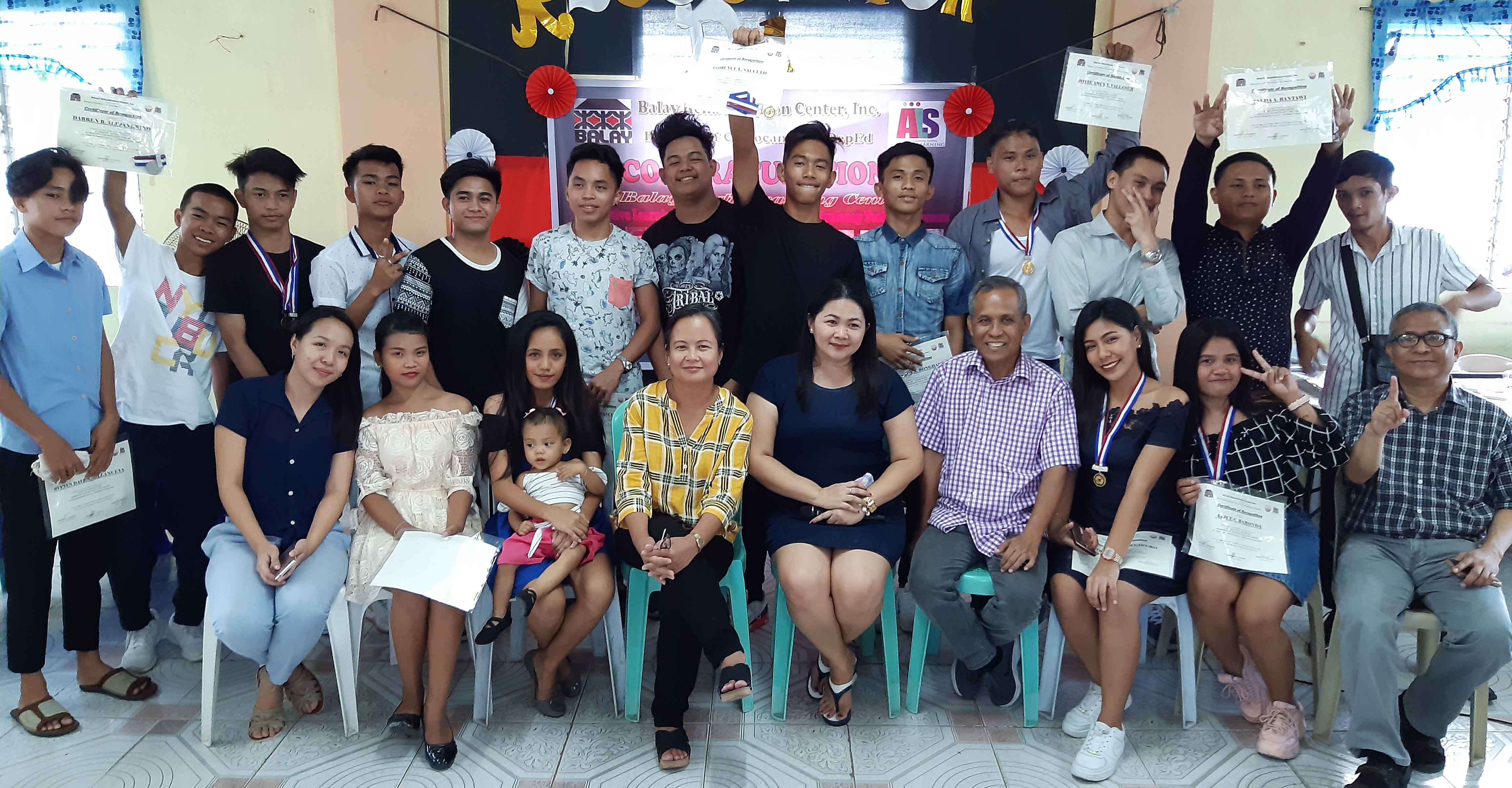How Rich We Are!
BALAY REHABILITATION Center in partnership with the House Committee on Civil, Political and Human Rights organized a forum to start a policy reform campaign for humanitarian protection on December 8, 2003. Resource persons came from the Department of National Defense (DND), the Armed Forces of the Philippines (AFP), the Department of Social Welfare and Development (DSWD), the Commission on Human Rights (CHR), and the International Committee of the Red Cross (ICRC), and Oxfam-GB. Seven civil society organizations and Bapa Joe Akmad, leader of the Mindanao People's Caucus, participated in the discussion. The secretaries of five committees of the House of Representatives also attended the event.
Guided by the theme "Strengthening Humanitarian Protection for the Internally Displaced Persons (IDPs) and Conflict Affected Communities," the forum led to the formation of a technical working group that would craft a bill to enforce the rights of IDPs, international humanitarian law and disaster management. The AFP and the DSWD have also committed to issue guidelines to protect civilians in times of armed conflict.
On International Human Rights Day on December 10, 2003, the Presidential Human Rights Committee (PHRC) passed a resolution urging the DND, DSWD and the DILG to observe the provisions of the UN Guiding Principles on Internal Displacement (UNGPID). Upon the efforts of BALAY, the House Committee on Civil, Political and Human Rights approved the resolution adopting UNGPID on January 27, 2004.
The following is the challenge raised by Atty. Rene Sarmiento of the PHRC for the government to enact a law that will make effective and forceful the UN Guiding Principles on Internal Displacement.
Can comedy and human rights go together? Yes, because nothing is alien to human rights. Comedy, drama, suspense, horror and musical entertainment like spaghetti and "ocho-ocho" are integral elements of human rights which make man or women, regardless of status, education, background and orientation, truly whole and human.
I started with a reference to comedy because I was moved by what the comedian Jim Carrey said and which was quoted in "USA Today." He said: "I challenge anybody in their darkest moment to write what they're grateful for, even stupid little things like green grass or a friendly conversation with somebody on the lift. You start to realize how rich you are."
Yes, how rich we are: nature resources, people, and principles of international humanitarian law and human rights law that form part of the Philippine law.
One bold set of principles relating to international humanitarian law and human rights law that the United Nations has reduced into writing thru its Representative of the Secretary General on Internally Displaced Persons in collaboration with international legal experts and in consultation with UN agencies and other international and regional, intergovernmental and non-governmental organizations is the UN Guiding Principles on Internal Displacement. This document which was submitted to the Commission on Human Rights of the United Nations at its fifty-fourth session in April 1998 sparkles with norms and standards which, if put into practice (legislation cum implementation), will address the concerns of the vulnerable internally displaced persons in the Philippines.
This United Nations Guiding Principles on Internal Displacement sets forth the rights of the displaced persons (right to life, dignity, liberty and security, right to respect of one's family life, right to an adequate standard of living, right to food, right to shelter, right to medical care, right to property and possessions, right to education, etc.) and the obligations of governments and rebels in all phases of displacement. Section 1, Principle 2 of UN Guiding Principles on Internal displacement states that these Pinciples shall be observed by all authorities, groups and persons irrespective of their legal status and applied without any adverse distinction. And their observation shall not affect the legal status of any authorities, groups or persons involved.
The UN Guiding Principles on Internal Displacement are comprehensive. They offer protection before displacement, during displacement and in post-conflict return, resettlement and reintegration. They affirm the right of the diplaced persons to request international assistance, the rights of international humanitarian organizations and other appropriate actors to offer such assistance, and the duty of states to accept such offers.
The dream of the internally displaced persons to see their children continue their studies will now become real. Principle 23 of the UN Guiding Principles provides that the authorities concerned shall ensure that displaced children received education which shall be free and compulsory at the primary level and that education and training facilities shall be made available to them.
The UN Guiding Principles is not a legally binding instruments, but it has a big value in providing a yardstick for monitoring the treatment of the displaced persons and can be used to strengthen the advocacy, lobby, conscientization and development work of churches, the NGOs, the civil society, the Commission on Human Rights, the Office of the Presidential Advisers on the Peace Process and other governmental offices.
Now, the sad part.
The UN Guiding Principles on Internal Displacement remains frozen in the psyche of our legislators and executive officials. From the time of its universal release in 1998 up to the present, a good five (5) years, no law has been passed in the Congress of the Philippines to implement and enforce these principles. Beneficiaries and principles alike are crying out for congressional action.
True, a law for the protection of the internally displaced is not a vote-getter, not one of that can fire the imagination and passion of many. But lawmaking is not a popularity contest but a serious business that means fleshing out with laws and principles found in the 1987 Constitution and in various human rights and humanitarian instruments. This is one kind of work that builds, strengthens and fortifies the sinews and ligaments of the Republic.
On the occasion of the 55th anniversary of the adoption of the Universal Declaration of Human Rights we convey with a sense of urgency to our legislators the challenges to enact a law that will make effective and forceful the UN Guiding Principles on Internal Dipslacement.
To borrow Nike's slogan, "Let's do it!", and save the lives and future of the internally displaced persons and families.









